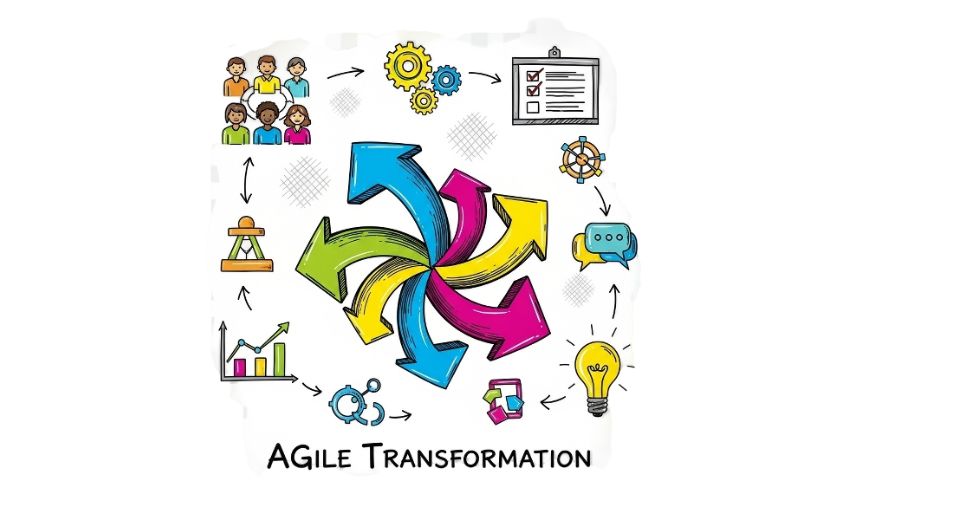
Aug 07, 2025

Presented in an in-depth and data-based research by Metastat Insight, the newest investigation into the Agile Transformation Services Market provides an interesting perspective on how organizations of all types are coping with deep-seated changes in operational models. Contrasting traditional approaches based on static hierarchies, this space reflects a wider corporate culture push that focuses on flexibility, cross-function collaboration, and ongoing improvement. The research highlights the way that more responsive service delivery is more than a technological transformation, but a fundamental cultural shift happening throughout enterprise landscapes. During the past decade, the Agile Transformation Services Market has gradually expanded from its early stronghold in software development to venture into the operational heart of sectors like finance, healthcare, manufacturing, and education.
This wider integration heralds a continuing shift towards systems that prioritize iterative advancement over static processes. The result is a richly textured landscape of transformation that influences not merely how services are deployed, but also how leadership, communication, and stakeholder alignment are conceptualized in organizations. The paper by Metastat Insight reveals the nuance that defines the transition, particularly the interaction among consultancy firms, internal Agile teams, and digital solution providers. Each possesses a unique value proposition, which feeds into a diverse and highly specialized ecosystem.
These organizations are typically involved in not only process reengineering but also mentoring, training, and strategic planning that is aligned with long-term goals. The dynamic tension between external expertise and internal capacity-building shows itself to be among the defining features of present-day market behaviour. One of the more subtle observations in the report is the increasing significance of context-specific solutions. There is no cookie-cutter formula for transformation, and organizations are finding that they are increasingly looking for answers that are tailored to their structural complexity, workforce characteristics, and strategic requirements. This has spawned the development of modular service solutions through which companies may implement Agile methodologies in stages, sidestepping disruption often inherent in broad procedure reform.
Implementation models with flexibility enable companies to manage risk more effectively and ensure continuity in service provision. Of particular interest is how the Agile Transformation Services Market has adapted to the needs of remote and hybrid work models. With teams now split up over geographies and time zones, conventional techniques of collaboration and monitoring have been inadequate. The market has witnessed a significant boost in services that focus on integrating digital tools, asynchronous workflows, and virtual team alignment. They are not add-ons but core pillars that enable a transformation in how organizations think about productivity and unity in a distributed environment.
The focus on measurable outcomes has also changed. Whereas early adopters were primarily concerned with delivery time and volume of output, today's customers are much more concerned with metrics that track flexibility, customer satisfaction, and staff engagement. The Metastat Insight report brings to the fore how service providers are reconfiguring value propositions to meet these finely tuned expectations. Through linking deliverables to qualitative measures, Agile service consultants are emerging as co-travellers in strategic transformation instead of mere practitioners of frameworks. Also increasing is the value placed on psychological safety and its impact on successful transformation.
Agile itself demands receptiveness to experimentation and failure an atmosphere that is seldom fostered through top-down edict. The report observes that organizations are spending money on leadership development and cultural training because they are increasingly aware that the success of Agile programs depends more often than not on human, not technical, inputs. These factors are transforming the nature of services provided, broadening beyond operational effectiveness to include emotional intelligence and behavioural guidance. Notably, the dynamic between regulation and Agile transformation is starting to emerge as a space of opportunity and restriction. Those sectors under high compliance regulations are working through the issue of regulatory compliance while adopting iterative development cycles.
The Agile Transformation Services Market is reacting with offerings that combine agility and governance to ensure that risk management is inherent and not added on top. This subtle intertwining reflects a more mature market that is sensitive to the fine line between innovation and accountability. Financial structuring of transformation services is also an area of increasing interest. Subscription models, phased engagements, and outcome-based contracts are supplanting conventional billing structures. The new pricing strategy reflects the flexible nature of Agile itself, enabling clients to adjust services as requirements change and value is proven. The shift also demonstrates a more fundamental alignment of market mechanics with the philosophy behind Agile methods one of never-ending reassessment and change. The research, in its formulation by Metastat Insight, makes little room for doubt that the Agile Transformation Services Market no longer works on the periphery of enterprise strategy. It has shifted to a place where it drives back-end decisions regarding growth, organization, and customer interaction.
Not on a linear path, the market continues to adapt to evolving organizational demands, economic constraints, and technological developments. This flexibility, combined with an expanding store of collective best practice, is a sign of a market not only expanding, but also increasing in maturity and sophistication. In reaching conclusions, the thorough report produced by Metastat Insight on the Agile Transformation Services Market serves to reinforce the thesis that the available services nowadays are significantly more sophisticated and focused compared to even several years ago. It is a place marked not by compliance with a methodology, but by an openness to question, redefine, and re-tune. For organizations that must remain competitive, the issue is no longer whether or not to embrace Agile services, but how to adapt in a manner that fits their individual path.
Drop us an email at:
Call us on:
+1 214 613 5758
+91 73850 57479